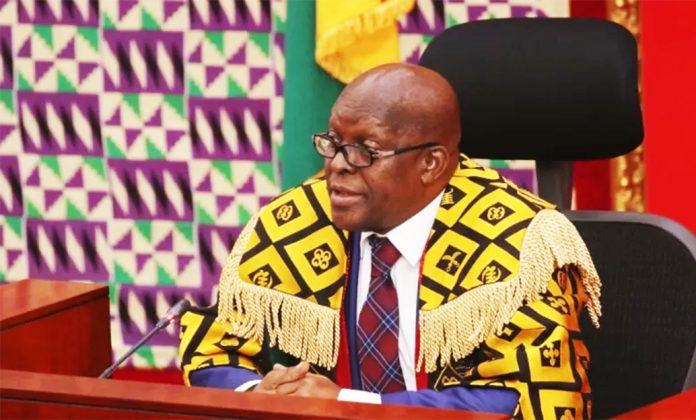A former District Chief Executive (DCE) of the Fanteakwa District Assembly, Mr. Abass Fuseini Sbaabe, has petitioned the Speaker of Parliament, calling for a clear interpretation and reaffirmation of the constitutional and legal roles of District Chief Executives (DCEs) and Members of Parliament (MPs) in district development planning.
Mr. Sbaabe’s petition follows recent comments attributed to the Chairperson of Parliament’s Committee on Local Government, suggesting that MPs should decide where government projects are located within districts, on the grounds that they make campaign promises to the electorate, unlike DCEs who are appointed.
In his petition, the former DCE described the statement as “legally unfounded, administratively misleading and fundamentally inconsistent with Ghana’s constitutional principles of decentralisation.”
Mr. Sbaabe argued that the comments reveal a “serious misunderstanding” of Ghana’s decentralised governance framework and the distinct roles assigned to MPs and DCEs.
Citing Article 240(2) of the 1992 Constitution, he emphasised that the constitution vests developmental authority at the district level in the District Assemblies, not in individual Members of Parliament.
“MPs play an important role in legislation and national representation, but they do not exercise executive or administrative authority over local development projects,” he stated in the petition.
District Assemblies Are the Highest Authority
Quoting the Local Governance Act, 2016 (Act 936), Mr Sbaabe reminded Parliament that the District Assembly, chaired by the DCE, is “the highest political authority in the district with deliberative, legislative and executive powers.
“All district projects,” he noted, “must conform to the Medium-Term Development Plan (MTDP) prepared in consultation with local communities and approved by the National Development Planning Commission (NDPC).”
He further stated that the DCE, as the President’s representative, is constitutionally responsible for coordinating and implementing all government programs and development initiatives within the district, a mandate that cannot be diminished by the fact that DCEs are not elected.
The petition also cites Section 16(1)(a) of Act 936, which stipulates that an MP representing a constituency within a district “may participate in the deliberations of the District Assembly, but shall not have the right to vote.”
“This clearly shows that the MP’s role is consultative and advisory, not executive,” Mr. Sbaabe stressed.
He cautioned that allowing MPs’ campaign promises to determine project locations could undermine fairness, distort planning priorities and politicise development at the local level.
Mr. Sbaabe urged the Speaker to: Direct the Committee on Local Government to issue an official clarification on the lawful roles of DCEs and MPs in district development planning.
Reaffirm Parliament’s commitment to the principles of decentralization as enshrined in the Constitution and Act 936.
Encourage continuous education and orientation for MPs and committee members to foster better cooperation between legislators and local government officials.
Mr. Sbaabe warned that public statements suggesting that MPs have authority over project siting could “erode the credibility of Ghana’s decentralisation system” and “undermine the lawful authority of District Assemblies.”
He concluded: “For effective governance and administrative harmony, development decisions must be rooted in law, planning and community consultation not in campaign promises or political influence.”
Follow the The Chronicle Newspaper channel on WhatsApp: https://whatsapp.com/channel/0029VbBSs55E50UqNPvSOm2z









